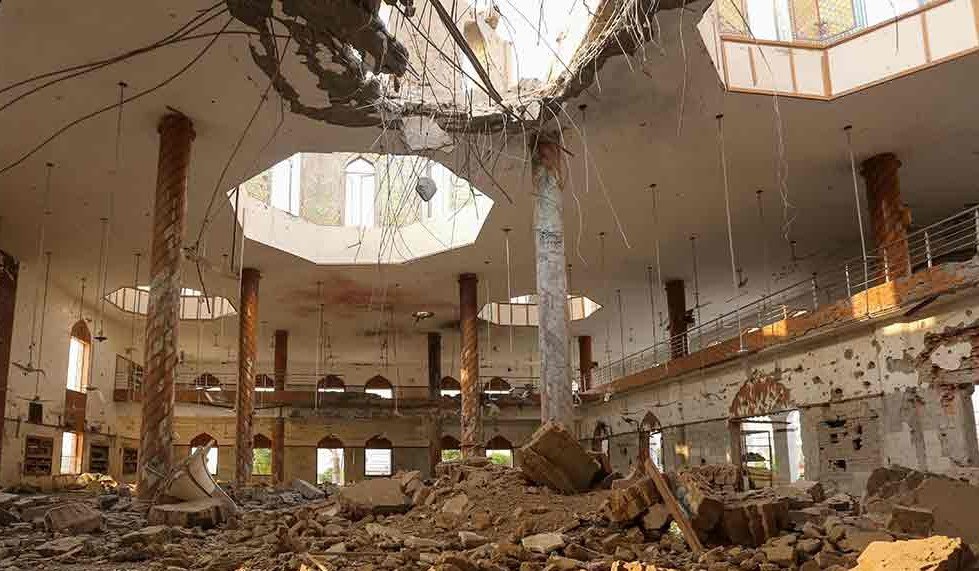Pakistan is rebuilding high-tech terror training camps in PoJK with ISI and terror group support, months after India’s Operation Sindoor decimated their infrastructure. Intelligence inputs suggest a shift to smaller, covert units equipped with radar-jamming tech and thermal masking to evade Indian strikes.
By Pravin Kumar
In a clear continuation of its strategy to destabilize India, Pakistan has resumed rebuilding terror training facilities in Pakistan-occupied Jammu and Kashmir (PoJK), leveraging advanced technologies to shield these camps from future Indian military strikes, according to intelligence sources.
The Pakistani Army, with active support from its Inter-Services Intelligence (ISI) and top commanders of terrorist groups, is spearheading this effort to revive infrastructure destroyed during India’s Operation Sindoor in May 2025.
The rebuilding of these terror factories, backed by advanced technology and ISI coordination, reflects Pakistan’s unyielding agenda to “bleed India by a thousand cuts,” a strategy it has pursued for decades.
Intelligence inputs reveal that Pakistan is constructing smaller, high-tech terror camps designed to accommodate 20 to 30 operatives, a significant shift from the larger facilities housing 70 to 80 terrorists that were targeted in previous Indian operations.
These compact units, strategically located in forested and mountainous areas such as Athmuqam, Sardi, Lipa, Kotli, Kahuta, Jankote, and Chamankot in PoJK, aim to evade detection by Indian surveillance systems.
The facilities are equipped with radar-jamming technology, satellite signature masking, and thermal imaging countermeasures to thwart aerial and satellite reconnaissance.
READ: Journalists’ Protest Grow s in Imphal Amid Official Silence
The Pakistani Army is collaborating closely with commanders from Jaish-e-Mohammed (JeM), Lashkar-e-Taiba (LeT), Hizbul Mujahideen, and The Resistance Front (TRF), the latter responsible for the deadly April 22 Pahalgam attack that killed 26 civilians, mostly tourists, in Jammu and Kashmir.
Some local terrorists from Jammu and Kashmir, now operating from PoJK, are also assisting in training and rebuilding efforts, further strengthening Pakistan’s terror network.
These camps are guarded by Pakistani military personnel equipped with advanced surveillance tools, including Turkish-made drones, to counter potential Indian strikes.
Indian intelligence agencies recently intercepted communications about a high-level meeting in Bahawalpur, a key JeM hub previously targeted during Operation Sindoor. The meeting, attended by senior commanders of JeM, LeT, Hizbul Mujahideen, TRF, and ISI officials, focused on reorganizing terror operations, redistributing resources, and accelerating recruitment in Pakistan and Jammu and Kashmir.
The agenda included finalizing training protocols and adopting measures to keep these activities covert, learning from the vulnerabilities exposed during India’s May 6-10 operation, which destroyed key terror hubs like the Markaz Subhan Allah complex in Bahawalpur, Sawai Nala in Muzaffarabad, and Markaz Taiba in Muridke.
READ: Tragedy at Rath Yatra: Stampede Kills Three in Puri
Operation Sindoor, launched in retaliation to the Pahalgam attack, saw the Indian Armed Forces strike nine terror camps across Pakistan and PoJK, obliterating facilities in locations like Umranwali, Chhota Chak, Luni, Tipu Post, Putwal, Chaprar, and Jamil Post.
The operation also caused significant damage to Pakistani military assets, including six fighter jets, two surveillance aircraft, and multiple drones. Despite this setback, Pakistan’s rapid reconstruction efforts indicate a persistent commitment to its proxy war against India, with funding and logistical support from the Pakistani Army and ISI.
Recent incidents along the Line of Control (LoC) underscore the growing threat. In the past 10 days, two infiltration attempts in the Keri sector of Rajouri district were foiled, with one terrorist killed in each encounter.
The remaining infiltrators, believed to be Pakistani nationals trained in these new camps, retreated after facing alert Indian troops. Indian forces remain on high alert along the LoC and International Border, closely monitoring terrorist activities in PoJK and Pakistan.
Sources emphasize that Operation Sindoor has only been suspended, not terminated, signaling India’s readiness to respond to further provocations.
Indian defense officials have dismissed Pakistan’s claims of civilian casualties during Operation Sindoor as propaganda, asserting that strikes were precise and limited to terror infrastructure.
As Pakistan continues to fortify its terror ecosystem, India’s armed forces are maintaining heightened vigilance, prepared to counter any renewed threats emanating from across the border. The situation remains volatile, with the potential for further escalation if Pakistan persists in its destabilizing activities.














